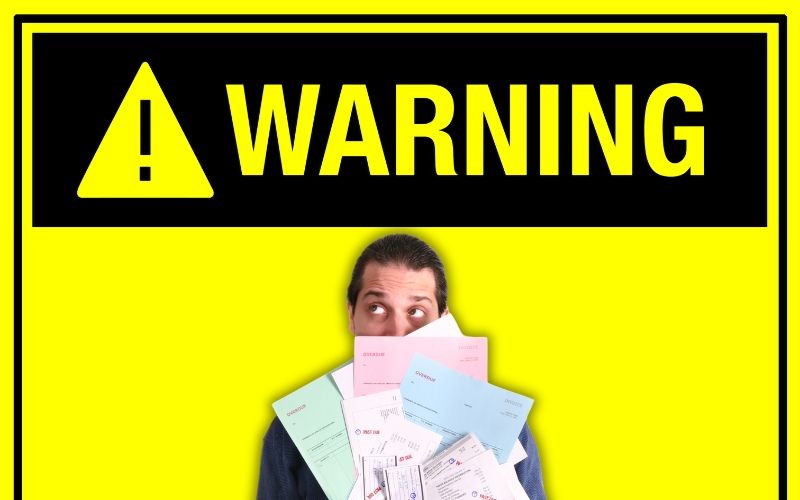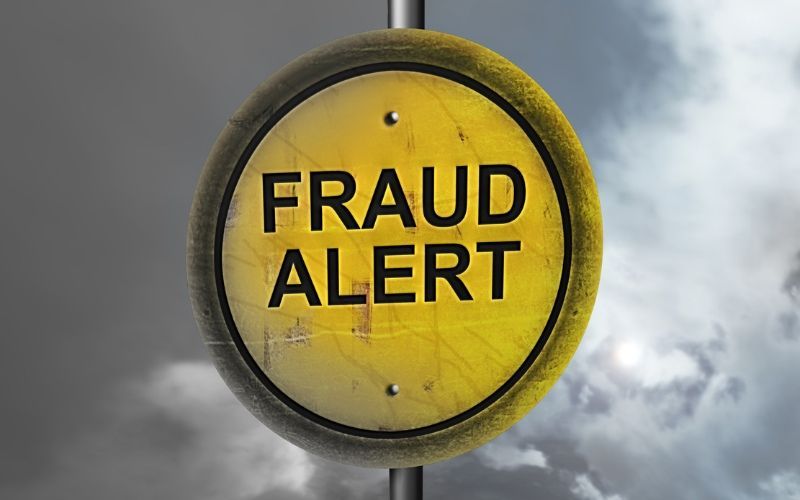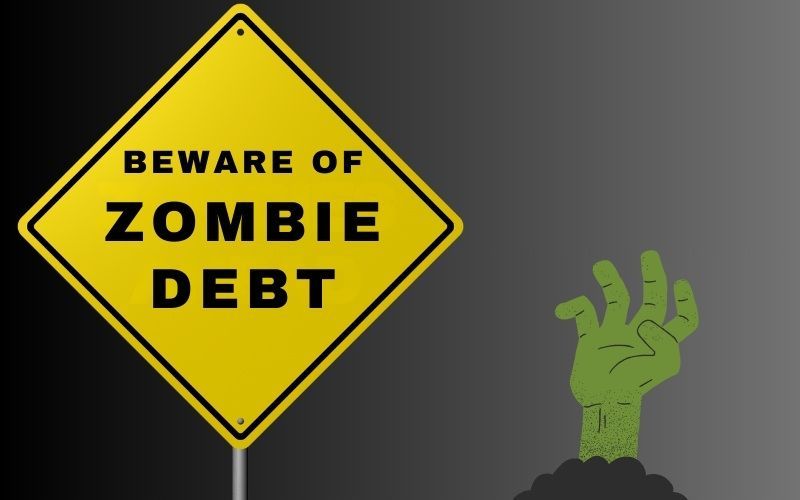The 5 Main Credit Score Factors You Need To Know
Last Updated: February 29, 2024
What Really Impacts Your Financial Reputation

Disclaimer: We are not qualified legal or tax professionals and are not giving advice. Always speak with a qualified professional before making any legal or financial decisions.
Pacific Debt Relief is not a credit repair organization nor does our program aim to improve your credit score. The information below is for educational purposes to help consumers make informed decisions as it relates to credit and debt.
In a world where your financial opportunities hinge on a three-digit number, understanding the dynamics of your credit score is crucial. Whether you're eyeing a new home, dreaming of a new car, or simply striving for financial freedom, the key lies in mastering the factors that affect your credit score.
This article peels back the layers on the five fundamental aspects that determine your creditworthiness. With expert insights and actionable tips, we'll guide you through the intricacies of credit scores, empowering you to enhance your score and unlock the doors to your financial aspirations.
Ready to take control of your credit future? Let's dive in.
If you'd like to skip the article and speak to a debt specialist right away, click here for a free consultation.
What Affects Your Credit Score?
FICO and VantageScore are the two credit scoring companies that determine your score and report it to TransUnion, Equifax, and Experian. They look at five factors: payment history, credit utilization ratio, length of credit history, the mix of credit types, and recent applications.
Payment History
Your payment history is the most important factor in determining your credit score. FICO weights it at 35% while VantageScore says that it is very influential. If you pay your bills late – by 30 or more days – or miss payments, your credit score will take a huge hit.
- Always pay your bills on time.
- If the bill comes due out of sync with your payday, ask your lender if you can change due dates so that your paycheck and the bill arrive at the same time.
- If you pay online, don’t wait until the last minute to pay your bill. The payment can be delayed and will hurt your score.
- Show progress on paying down bills.
- Check your credit reports once a year (it’s free) to make certain that all information is correct.
Credit Utilization Ratio
The credit utilization ratio looks at how much debt you have compared to how much revolving credit you have. Your goal is to have the credit utilization ratio down as much as possible with most experts recommending a credit utilization ratio of 30% or less.
The formula is to divide how much debt you have on your cards by how much credit you have on your cards, then multiply that by 100 for a percentage.
An example would be if your credit card had a balance of $300 and your limit was $1000. Your CUR would be $30%.
We discussed this in greater detail in How to Cancel a Credit Card Properly with examples of how paying off debt improves your CUR.
- Pay off credit cards to improve your credit utilization score.
- You can also ask that your credit limit be increased. Just don’t actually charge that increase!
Age of Credit
Lenders like to see that a potential debtor has a long credit history. This creates issues for younger people or for those who prefer to pay in cash.
- Keep $0 balance credit cards open as long as they do not have annual fees.
Credit Mix
Lenders like to see that you have different kinds of credit on your credit report. This can include mortgages and car loans along with credit cards. If you rent, you can add that history to your credit report so that you have more data.
- If you don’t have a mortgage or a car payment, you can use a rent reporting service to add to your credit mix. It does cost money.
- Take out a small loan and then repay it over time, just to add an extra source of creditors to your report. Put the money from the loan into a savings account and only use it to make monthly payments.
- Add the information to Experian Boost which will affect your Experian score.
Read more about Different Kinds of Debt
Recent Applications
The more times you apply for credit the more hits your credit score will take. These are called hard inquiries or hard pulls. A soft pull includes checks by potential landlords or employers prescreens you. Soft pulls won’t hurt your credit score.
Always pay your bills on time! Your payment history is important not only to future lenders but to landlords and employers. They get a rough idea about your level of responsibility and whether you are a security risk. If you’ve gone through a rough patch and have paid bills late, you can explain your situation to a potential employer.
Your next concern is to pay down your outstanding bills and improve your credit utilization score. A budget is imperative and you may need a financial reset.
Too Much Debt and Bad History
If you have more than $10,000 in credit card debt and can’t make even minimum payments, you may be a great fit for debt settlement. Debt settlement negotiations with your creditors to lower the amount that you owe while you build up a savings account to pay the decreased debt amount. There can be some temporary effects on your credit score, but if your score is already beaten up, it may be a good solution.
Checking Your Credit Report and Score
Before trying to improve your credit score, it's important to check your current credit report from all three bureaus and know your starting credit score. You can get free annual credit reports from AnnualCreditReport.com. Request one report every four months to keep an eye on your credit year-round. These reports provide detailed information on your payment history, credit utilization, types of credit, new accounts, and more.
For regular access to credit scores, free services like Credit Karma provide VantageScores updated monthly. They also have free credit report snapshots from TransUnion and Equifax. Monitoring your credit report and score will allow you to track improvement over time.
If you spot any incorrect information while checking your credit report, you can start the dispute process to correct errors. This is important since mistakes can significantly damage your score.
Strategies for Improving Credit Utilization
Your credit utilization ratio compares your total credit card balances to your total credit limits. Experts recommend keeping credit utilization below 30%. However, people with the best credit scores tend to use less than 10% of their total credit limit.
To lower your credit utilization:
- Request credit limit increases on cards with high balances. This instantly lowers utilization since you now have more available credit.
- Make extra mid-month payments to bring balances down before the statement closing date. This lowers the balance reported to the credit bureaus.
- Use the Credit Karma credit simulator to estimate how potential actions like balance transfers or new accounts may impact your credit scores. This allows you to make informed decisions to lift your scores.
If your debt feels completely unmanageable, [our financial reset article](link to financial reset article) discusses options like debt consolidation and management plans. These can help organize payments as you pay down balances.
A few ways to build your credit in these areas:
- Become an authorized user on a spouse or family member's old credit card they've managed well. This links the card's positive history to your credit report.
- If you have no installment loans, consider a small personal loan with a set repayment structure. Manage it well to add to your credit mix.
- Before applying for new credit, use a score simulator to understand impacts to your credit age and inquiries. Minimize applications whenever possible.
FAQs
-
How long does it take to improve your credit score?
It depends on your starting score and factors bringing it down. With diligent credit management, you may see a significant score improvement in as little as 6 months. Fixing more serious issues like collections or bankruptcies can take longer. In general, the higher your score, the slower the improvement.
-
Does checking my own score hurt my credit?
No. Checking your own credit scores and reports is considered a "soft inquiry" that has no impact on your scores. Only applying for new credit triggers hard inquiries that may moderately ding scores. Feel free to check personal scores as often as you like.
-
Should I close old credit cards I don’t use anymore?
Generally no. If the cards don't have annual fees, it's best to keep them open even with zero balances. This preserves the credit history, helping your credit age and mix factors. However, you can close more recent cards with short histories if needed without too much score damage.
-
Can I rebuild credit without a credit card?
Yes. You can rebuild credit through the responsible use of secured cards, credit builder loans, and other alternative products. Eventually, you can graduate to unsecured credit cards and qualify for better rates. On-time rent and utility payments also demonstrate responsible credit management over time.
-
How do I know when my credit is “good”?
The credit scoring models have different score ranges, but FICO considers scores above 670 as Good and 700-850 Very Good to Exceptional. Reaching higher tiers makes you eligible for the best rates on loans and credit cards. Shooting for 740+ is a good reach goal during your credit rebuild.
Conclusion
Checking your credit reports and scores is the critical first step in any credit score improvement journey. This allows you to pinpoint problem areas in your credit profile. Going forward, diligently managing utilization and on-time payments has the biggest impact on lifting scores over time. But also consider your credit mix, history length, and new applications for a well-rounded approach.
Use free monitoring services to track your progress. Employ score simulations to estimate impacts of potential decisions. With focused effort, most people see noticeable results within 6 months. And significant score gains can open up much better rates on credit products, loans and other services tied to your financial reputation.
The key is staying committed to responsible credit management. Doing so paves the way for greater financial opportunities and savings over the long run. We hope these credit score insight tips put you on the path to success. Let us know if you have any other questions along the way!
Pacific Debt, Inc.
Since you are on the Pacific Debt website, you know we are a reputable and award-winning debt settlement company. If you’d like more information, we are happy to help out. We will explain all your options and help you decide which is the best option for you. We can even refer you to a trusted partner who may be able to better meet your needs.
If you have more questions, contact one of our debt specialists today. The initial consultation is free, and our debt experts will explain your options to you.
*Disclaimer: Pacific Debt Relief explicitly states that it is not a credit repair organization, and its program does not aim to improve individuals' credit scores. The information provided here is intended solely for educational purposes, aiding consumers in making informed decisions regarding credit and debt matters. The content does not constitute legal or financial advice. Pacific Debt Relief strongly advises individuals to seek the counsel of qualified professionals before undertaking any legal or financial actions.
Are you ready for debt relief help now?
Get Free Consultation- Accredited by Better Business Bureau with BBB A+ rating(4.93 rating and 1542 reviews)
- US News and World Reports and Bankrate ranked Pacific Debt as one of “The Best Debt Settlement Companies of 2020”
- 6.9 star rating by BestCompany.com (over 2379 client reviews)
- 4.8 star rating by TrustPilot based (over 1477 verified consumer reviews)
- ConsumerAffairs.com Accredited (over 543 verified reviews with an average rating of 5 stars)
- A Top 10 Rated Company by TopTenReviews.com , ConsumersAdvocate.com and Top10debtconsolidation.com
- 4.7 star rating by Google (220 client reviews)
- 100% rating by SuperMoney (9 client reviews)
Pacific Debt Relief
750 B Street Suite 1700
San Diego, CA 92101
Hours of Operation
Mon-Thurs: 6am - 7pm PST
Friday: 6am - 4:30pm PST
Saturday: 7:30am - 4:30pm PST
Clients
Phone: (877) 722-3328
Fax: (619) 238-6709
Email: cs@pacificdebt.com
Non-Clients
Phone: (833) 865-2028
Fax: (619) 238-6709
Email: inquiries@pacificdebt.com
"To eliminate debt one household at a time, while placing people first." - Pacific Debt
© 2024 Pacific Debt Inc. dba Pacific Debt Relief, all rights reserved.
California Privacy Policy |  Do Not Sell My Personal Information
Do Not Sell My Personal Information
GLBA Privacy Notice | CDRI Accredited Member
*We do not discriminate on the basis of race, color, religion, sex, marital status, national origin or ancestry.
*Please note that all calls with the company may be recorded or monitored for quality assurance and training purposes.
*Your visit to our website may be monitored and recorded from essential 3rd party scripts.
*Clients who make all their monthly program deposits pay approximately 50% of their enrolled balance before fees, or 65% to 85% including fees, over 24 to 48 months (some programs lengths can go higher). Not all clients are able to complete our program for various reasons, including their ability to save sufficient funds. Our estimates are based on prior results, which will vary depending on your specific circumstances. We do not guarantee that your debts will be resolved for a specific amount or percentage or within a specific period of time. We do not assume your debts, make monthly payments to creditors or provide tax, bankruptcy, accounting or legal advice or credit repair services. Pacific Debt is not a credit repair firm nor do we offer credit repair services. Our service is not available in all states and our fees may vary from state to state. Please contact a tax professional to discuss potential tax consequences of less than full balance debt resolution. Read and understand all program materials prior to enrollment. The use of debt settlement services will likely adversely affect your creditworthiness, may result in you being subject to collections or being sued by creditors or collectors and may increase the outstanding balances of your enrolled accounts due to the accrual of fees and interest. However, negotiated settlements we obtain on your behalf resolve the entire account, including all accrued fees and interest. C.P.D. Reg. No. T.S. 12-03825.










